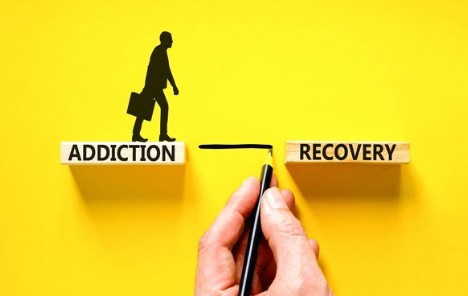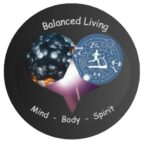
Addictions come in multiple forms and can leave us feeling shame filled, embarrassed, unloved and alone. Gathering all the addictive behaviors as one group, 75% to 80% of the populace has some form of addiction. Some common forms are food, nicotine, alcohol, gambling, drugs, sex, internet/gaming, television – ultimately anything that consumes your attention, time and resources and leads you to no real happy ending. Addiction is one of life’s most challenging battles, affecting millions worldwide regardless of background, education, or socioeconomic status. Its effects are impactful on the mind, causing distress, urgency and lack of clarity. On the body it causes degradation of physical attributes, increases unhealthy substance intake and can cause unhealthy physical dependency. Spiritually it attacks our connection with our conscientious and with God, it moves us toward depravity. Having been burdened with addictions myself, I recognize the overwhelming control it has on your life. Whether struggling with substances, behaviors, or processes, the path to recovery requires more than willpower alone. Willpower alone never defeated the hold a strong addiction had on me. Instead, I needed a comprehensive approach that addressed the physical, psychological, social and most important the spiritual dimensions of addiction.
Keep in mind that addictions remove us from the true person we are, it’s a cover for feelings and emotions we’d rather not deal with. It’s a lie that’s been put upon us that we are not greater than the sickness that burdens us. It pushes us to go against who we truly are.
I can tell you on the other side of the mountain of addiction there is clarity of mind. You walk in truth and integrity, which creates a sense of personal well-being and mindful clarity. Your physical well-being improves because stresses vanish. Your spiritual sense connects when you realize you’re not alone. You begin to live in the light of being true to yourself and this is personally edifying.
This article outlines ten evidence-based practices that can help create lasting freedom from addiction.

- Acknowledge the Reality of Your Addiction
Recovery begins with honest recognition. While I’m caught up in my addiction it’s easy to rationalize my behaviors without any sense of consequence or impact on others. True healing starts when you can say, “I have an addiction that is harming my life, and I need to address it.” This acknowledgment isn’t about shame or moral failure but about accepting a health condition that requires attention. This personal recognition is huge. It is the first step in a journey to real freedom. Think of the addiction as something that is truly controlling your life and your behaviors. Consider if you want to control your destiny or have an addiction control you. Because that is what addictions do. In my life I had to decide that I was going to control me, not have my addiction control me. Further, this is not a shameful point, this is a point that you can stand up and really own who you are. And, let’s be real here, at this point it really doesn’t matter how others view you …… because, they’re already caught up in their own addictions. There is something incredibly freeing to just announcing, if even to yourself, that you have an addiction and it needs to go. Once you’re on that path you won’t care who you announce it to because you are on a road to freedom and are willing to put destructive or poor behavior where it belongs, in the past.
Research shows that people who fully acknowledge their addiction are more likely to engage meaningfully in treatment. This recognition creates the necessary foundation for change, opening the door to the possibility of recovery rather than continuing the cycle of denial that perpetuates addiction.

- Seek Professional Support and Treatment
Addiction is a complex condition that often requires professional intervention. Evidence-based treatments might include:
- Medical detoxification to safely manage withdrawal
- Cognitive-behavioral therapy to address thought patterns
- Medication-assisted treatment for certain substance addictions
- Specialized therapy approaches like dialectical behavior therapy
- 12-Step approach such as in Alcoholics Anonymous is remarkable for any addiction
My path was both a 12-Step program and a good counselor. Aligning this process allowed me to openly announce the problem I was having with similar type folks. It also provided me a stepped course to follow for freedom. A separate counselor helps guide my thinking and confirms my direction. The structure of professional treatment provided me not only expert guidance but also accountability and monitoring during vulnerable early recovery stages. Studies consistently show that people who engage in formal treatment have significantly higher rates of sustained recovery than those who attempt to quit on their own.

- Build a Recovery Support Network
Isolation fuels addiction, while connection nurtures recovery. Surrounding yourself with people who understand addiction and support sobriety creates a protective social environment. This network might include:
- Support group members, again such as in 12-step or SMART Recovery programs
- Family members and friends who support your recovery goals
- Treatment professionals and recovery coaches
- Sober peers who model successful recovery
These relationships provide emotional support, practical advice, and living examples that recovery is possible. Research indicates that social support is one of the strongest predictors of sustained recovery success. In a support group you can acquire a mentor that can help with accountability and direction.

- Identify and Address Underlying Triggers
Addiction doesn’t develop in a vacuum. Understanding your personal triggers—the situations, emotions, or experiences that activate cravings—is essential for developing effective coping strategies. Common triggers include:
- Stress and negative emotional states
- Environmental cues associated with past use
- Relationship conflicts
- Celebratory situations or positive emotions
There is so much to really understanding the addiction cause. This is the core work you want to follow. It’s like continually getting a sinus infection and the doctor continues to subscribe the same antibiotics. Infections will continue to come back unless you work to understand the root of the cause, not just cover it with medicine. In this regard you will be more vulnerable to returning to the addiction unless you take the time to locate the underlying cause. More times than not that cause is rooted in a past trauma, event or childhood occurrence that you never would believe would lead you to an addiction. A good counselor can help make this discovery. By mapping your triggers and developing specific plans for managing each one, you create a personalized relapse prevention toolkit. This practice transforms reactive patterns into conscious choices.

- Cultivate Mindfulness and Emotional Regulation
Many addictions serve as maladaptive attempts to escape uncomfortable emotions or experiences. Learning to observe thoughts and feelings without immediately reacting to them builds crucial recovery skills. Regular mindfulness practice helps:
- Recognize cravings without automatically acting on them
- Tolerate distress without seeking immediate relief
- Make conscious choices rather than impulsive decisions
- Develop greater self-awareness about emotional patterns
This is where I find the spiritual and most important part of this journey. I contend, after several addictions and recoveries, there is a spiritual battle going on all around us. There are good and evil entities that are engaged for our souls. At some point we have allowed an addictive spirit into our lives, we now need to kick that spirit out. This is where true prayer, guidance by the Holy Spirit and recognizing God is in control over all parts of our lives. The AA 12-Step programs recognize this lack of control we have and direct you to engage in a power greater than yourself. For me that power is God and Jesus. We cannot fight spirits using human weapons. This method of prayer, Holy Spirit led meditation and seeking root causes for behaviors was a huge part of my recovery. I cannot emphasize this spiritual connection and necessity enough. Studies show that mindfulness-based interventions significantly reduce relapse rates and increase days of abstinence among people recovering from various addictions.

- Transform Your Environment
Our surroundings powerfully influence our behavior. Environmental restructuring involves:
- Removing addiction-related items from your home
- Limiting or eliminating contact with people who are actively using
- Creating physical spaces that support your recovery goals
- Establishing routines that structure your time in healthy ways
This practice reduces exposure to high-risk situations and creates an environment where recovery can flourish. You are working to transform your life and take control of it. Clinging to past behaviors can disrupt the progress you make on your journey to being who you truly are. It can also encourage giving up on your quest for being addiction free. Research demonstrates that environmental modifications significantly improve outcomes, particularly in early recovery.

- Develop Healthy Lifestyle Practices
Addiction takes a toll on physical health, and restoring wellness supports recovery. Focus on:
- Regular exercise, which reduces cravings and improves mood
- Nutritional eating that supports brain healing and energy regulation
- Consistent sleep patterns that stabilize mood and reduce vulnerability
- Stress management techniques like deep breathing or progressive relaxation
These practices don’t just improve physical wellbeing, they directly support neurological recovery and reduce vulnerability to relapse. I put this to practice daily. Engaging in something physical from walking to strength training and High Intensity Training can kick off endorphins that create a more natural and healthier sense of good feeling. Studies show that exercise can be as effective as some medications in reducing cravings.

- Find Purpose Beyond Addiction
Sustainable recovery requires something to move toward, not just something to move away from. Discovering meaningful activities and goals creates a compelling vision for your life without addiction. This might involve:
- Reconnecting with former interests or developing new ones
- Engaging in volunteer work or service to others
- Pursuing education or career development
- Exploring spiritual practices or philosophical interests
Having purpose creates motivation that extends beyond the immediate challenge of staying sober, transforming recovery from a restrictive experience into an expansive one.

- Practice Radical Honesty
Addiction thrives in secrecy and deception—both toward others and toward oneself. Committing to rigorous honesty breaks this pattern. This means:
- Being truthful with yourself about thoughts, feelings, and behaviors
- Maintaining transparency with trusted others about struggles and successes
- Avoiding the small deceptions that can pave the way for larger ones
- Accepting accountability for past behaviors while focusing on present choices
Think of it like, while engaging in the behavior, is it something you would openly share with others? If the answer is no, then this is a behavior that needs to be displaced. I understand this is easier said than done. It does take some mental fortitude. And maybe even some practice before you finally say, enough and put the behavior down. Just stay with it, be honest with yourself and above all don’t punish yourself or self-loathe because you couldn’t get there this time. There will be other times. Just stay the course. Your consistency will turn to victory. This practice builds integrity and self-trust that had been eroded during active addiction, creating a foundation for authentic living.

- Embrace Continuous Growth and Adaptation
Recovery isn’t a destination but an ongoing journey of development. Long-term success requires:
- Regular reassessment of your recovery practice
- Willingness to try new approaches when challenges arise
- Celebrating progress while remaining vigilant about vulnerabilities
- Viewing setbacks as learning opportunities rather than failures
This flexible, growth-oriented mindset allows your recovery to evolve as you do, remaining relevant and effective throughout different life stages and circumstances.

The path to freedom from addiction is rarely linear, but these ten practices create a comprehensive framework for sustainable change. By addressing the physical, psychological, social, and spiritual dimensions of recovery, you build not just abstinence but a fulfilling life where addiction no longer holds power. Recovery becomes not just about what you’re leaving behind, but about the rich, authentic life you’re moving toward with each choice you make.
Don’t be surprised as one addiction falls off, another may creep in. This is where vigilance to staying on a mindful path will help. Just be aware of what you’re substituting for deeper feelings that need to be addressed. This mindfulness and self-awareness will help you live as the true person you are.
